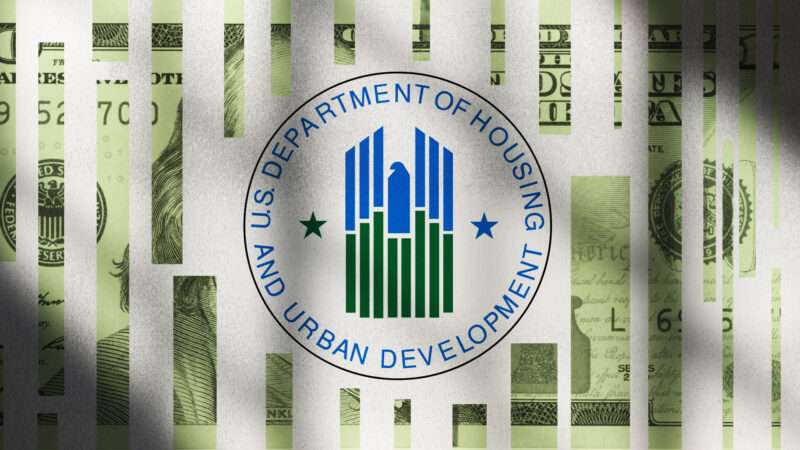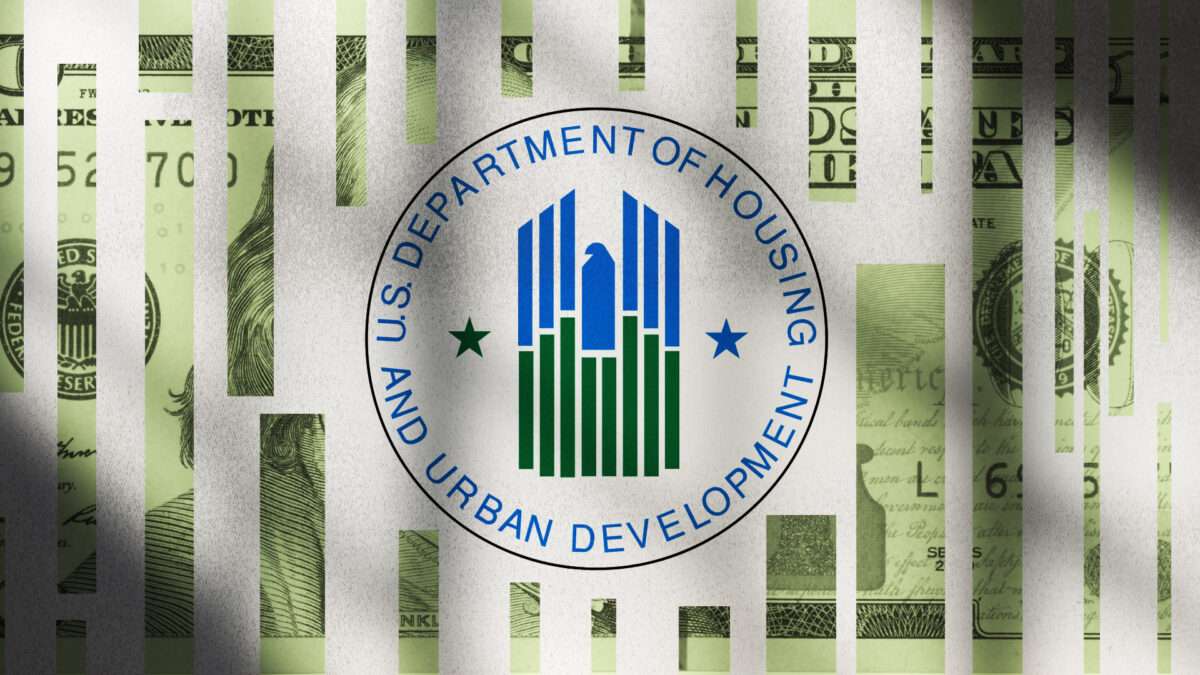The Feds Give States Millions To Fix Homelessness, but States Are Sending It Back

ST. LOUIS—Rich LaPlume, 58, cracks his knuckles and leans back against a chipped door frame in the basement of St. Lazare House—a St. Louis community home for homeless youth with a history of mental illness. Taped to the wall behind him is a series of brightly colored motivational posters, with slogans like "I AM A FIGHTER" and "BELIEVE IN YOURSELF."
"When you're homeless and are dealing with a mental health condition, you lack so much more than a home," he tells me. "It's so hard to get on your feet, and you need so much support. And for so long, this population has been invisible. That's a problem." Around 30 percent of homeless individuals nationwide suffer from a mental health condition—a statistic St. Lazare aims to combat.
Yet LaPlume has problems of his own to worry about. As director of St. Lazare House, he has spent six years overseeing the full financial process of running the home, including the renewal of contracts and leases, the coordination with mental health care providers, and the allocation of grant money. Thanks to LaPlume and his team's programming, over 60 youth have been given a new life free from chronic homelessness.
But despite all of his hard work, as of this November, St. Lazare House is $155,000 in debt.
The problem, LaPlume tells me, isn't St. Lazare's, which by all measures is an exceptional success—offering stable housing to homeless St. Louisans, plus free mental health care and life coaching, all while maintaining nearly a 100 percent retention rate of its residents. Rather, the problem lies with the St. Louis office of the U.S. Department of Housing and Urban Development (HUD), which failed to process St. Lazare's grant renewal in time for its upcoming fiscal year, which started May 1, 2023. Since then, St. Lazare has been forced to pile up thousands in debt while awaiting reimbursement from the city, which the HUD office could not guarantee it would provide.
But the city failed to renew St. Lazare's annual contract in time. The deadline for renewal from the city was November 1, but due to even more bureaucratic backlogging, St. Lazare's contract wasn't ready. Until they received their contract back from the city, St. Lazare couldn't apply for reimbursement for the lost grant money, and were left to fall deeper into debt while they waited. Just recently, they were informed the reimbursement money wasn't coming.
Left without essential funding, St. Lazare has been forced to rely on savings to pay their lease. LaPlume laments, "It is because of the city of St. Louis that we are able to exist. And yet, St. Louis is our own worst partner."
This isn't just St. Lazare's story. St. Lazare House is one of many nonprofits nationwide suffering from dilatory allocation of federal grant money for the homeless. Most of the funding for homelessness organizations comes from the U.S. Department of Housing and Urban Development's "Continuum of Care" grant program, which allocates funding to states for coordinated housing programs for homeless adults and children. Each year, the federal HUD sends around $3 billion to states in grant funding for distribution to their homelessness organizations.
Yet every year, millions of dollars are sent back.
In 2022, the Office of the Inspector General (OIG) published an audit of Continuum of Care grantee spending levels—examining why, despite skyrocketing national homelessness, large portions of HUD grant money were left unspent. The findings were catastrophic. Between 2017 and 2020, OIG found that $454 million in Continuum of Care funding had gone unspent, or 9 percent of the program's total funding. Of those millions, $257 million had since been recaptured by the federal government during the period of the study. The rest was still missing.
How, amid a pervasive homelessness crisis affecting over half a million Americans, with the power to destroy the livelihood of major cities, can half a billion dollars in funding go unspent?
I ask LaPlume what happened to the missing HUD funds for St. Lazare, and how much the St. Louis city government had lost. His eyes light up: "You won't believe this." He pulls out his phone and dials the number for Shanna Nieweg, a woman he calls his "sister from another mister." Nieweg is the executive director of Horizon Housing Development Company, a homelessness nonprofit just down the street from St. Lazare.
Nieweg picks up immediately, and after a few sentences of prompting from LaPlume, she is rolling off numbers: From 2016 to 2019, the most recent period measured, St. Louis sent back $2.2 million in HUD Continuum of Care funding. This number jumps to roughly $2.7 million when including returned funds for planning grants—a sum greater than the four-year HUD budgets for both St. Lazare and Horizon Housing combined. For a city like St. Louis, with a homeless population of 1,100, the impact of this foregone money would be more than significant.
For community homelessness leaders like Nieweg and LaPlume, this bureaucratic ineptitude is personal. At 11:15 p.m. on October 2, St. Louis police entered a major homeless encampment near City Hall and ordered its residents to either clear out by midnight or be arrested. Images of the scene show armed police entering with flashlights and ordering confused and crying residents out of their tents. "They came in the middle of the night so they wouldn't be seen," LaPlume says. After a heated encounter with activists, the police abandoned the project around 1:30 a.m., telling the residents they could remain for the night. But the city's homelessness workers haven't forgotten.
LaPlume recalls quietly, "It was one of the most inhumane things I've ever seen in my life."
For the city's homelessness leaders, the financial waste and hasty dealings with encampments are a symptom of failed bureaucratic leadership. Even amid hard work and shrewd leadership, the disarray of city grant allocation and contracting can set local homelessness organizations up for failure. The problems in St. Louis, when compared to major West Coast cities like Los Angeles or Seattle, are relatively small: A journalist with the Los Angeles Times found nearly $150 million in federal homelessness funding for Los Angeles was returned from 2015 to 2020, as street camping exploded and the city's homeless population soared to over 40,000.
The investigators in the federal HUD audit probed into how and why federal grant money goes unspent in such massive proportions across the country. Their main finding was a number of issues in the tracking and monitoring of grantee spending. In the absence of clear and well-defined spending procedures for states and localities, they concluded, money is returned—or lost. They also noted the difficulty for grantees in finding affordable housing for their homeless—though affordable housing developers charge city governments with excessive bureaucratic red tape holding them back.
Unlike other agencies jostling for money in Washington, the Department of Housing and Urban Development struggles to spend enough. Halting its efforts at homelessness relief is a crisis of bureaucratic backlogging that withholds grant money from organizations in desperate need—not only setting such organizations up for failure but also forcing their home cities to seek out hasty and underfunded solutions to their housing crises. Funding for HUD is increasing next year by $116 million to cover funding increases for HUD homelessness assistance grants. But until HUD fixes its bureaucracy problem, it's unclear what effect the increase will have.
For now, organizations like St. Lazare that depend on HUD funds as a lifeline have no choice but to plow ahead. Many survive the bureaucratic chaos by working together, as do LaPlume and Nieweg. But even then, there are factors out of their control that threaten to shut them down. I ask LaPlume how he deals with all the uncertainty.
He responds, "We've been dealing with this for all our life. But everyone deserves a place to call a home and a stake in their community. So we're going to fight to keep them housed. No matter what."
The post The Feds Give States Millions To Fix Homelessness, but States Are Sending It Back appeared first on Reason.com.

